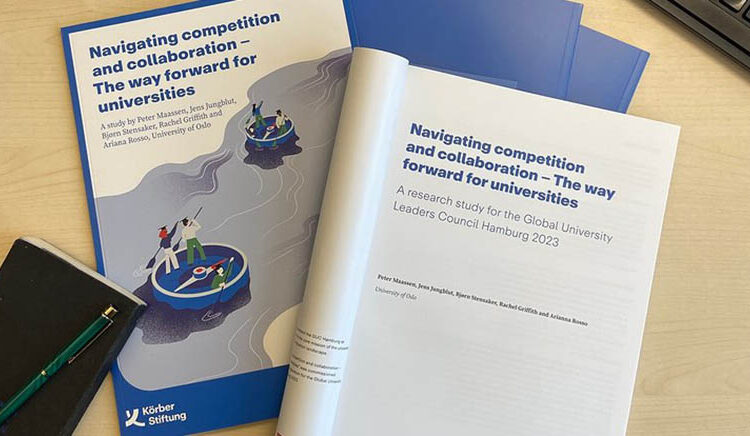How can universities better navigate the relationship between competition and collaboration?
This will be the main question at the fifth Global University Leaders Council (GUC) Hamburg in Germany from 14-16 June, colloquially known as a “summer school for vice-chancellors”. University World News got a preview of the research paper commissioned to inform discussions at the gathering.
Professor Peter Maassen of the faculty of educational sciences at the University of Oslo in Norway, who led the study, also presented some of its main findings at a recent seminar held at Stellenbosch University, South Africa, hosted by the Centre of Excellence in Scientometrics and Science, Technology and Innovation Policy (SciSTIP) of South Africa’s Department of Science and Innovation (DSI) and National Research Foundation (NRF).
Their study looked at 27 universities in 15 countries from Europe, Asia, Africa, North America, Latin America, and Australia.
The authors start by pointing out that scientific progress is based on the combination of both competition and collaboration.
“On the one hand, there is competition for the best ideas and research concepts, for the ‘best minds’ – from the student to the senior researcher level – and the competition for funding and reputation – for example, in the global rankings.
“And there is, on the other hand, the global exchange of ideas and research results, international collaboration on study and research programmes and the sharing of research infrastructure.”
“The important question is what kind of university we need for what kind of society. Of course, different countries will answer it differently, but the underlying issue is the pact between universities and society. The traditional understanding is under pressure, so we are searching for a new pact,” Maassen said.
The 50 university leaders from around the world expected at GUC Hamburg in June will use the study, ‘Navigating competition and collaboration – The way forward for universities’, as a starting point for their discussions.
It is anticipated that they will formulate recommendations on how universities can both compete and collaborate better to provide knowledge locally, nationally and globally for the benefit of society.
Source: https://www.universityworldnews.com/post.php?story=20230508065831269

